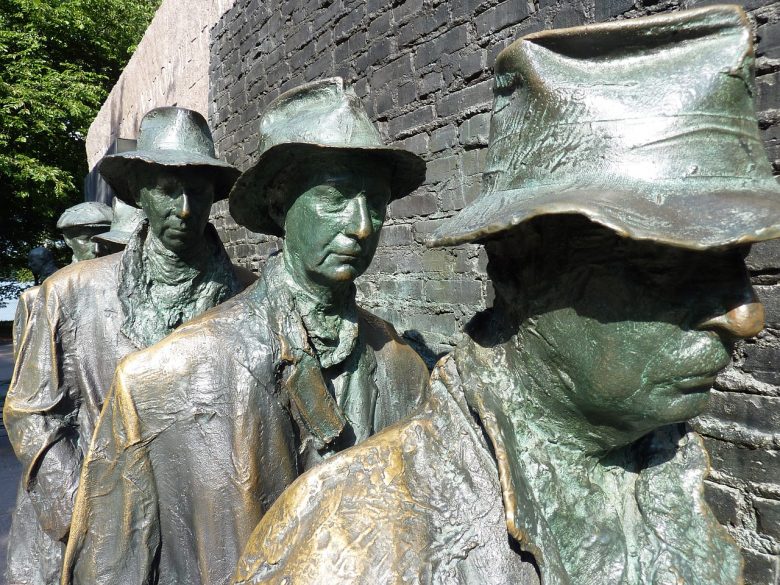An unhealthy economy might portend bad news for physical and mental health.
The issue: When the global economy slumped during the Great Recession of 2007-2009, Americans grappled with effects on their personal finances and employment status. At its peak, unemployment during the Great Recession topped out at 10 percent.
As Americans lost their jobs, some also lost insurance coverage. Research on the impacts of the Recession on health insurance coverage suggests that unemployment and health insurance coverage for men were linked, with a 1 percentage point increase in the state unemployment rate translating to a 1.67 percentage point reduction in the likelihood that men were insured.
In a new study, researchers at Hunan University and the University of Hawaii theorized that this lack of insurance, along with other factors, might have an impact on personal welfare. To test their theories, they looked at links between the health of the economy and personal health during the Great Recession.
An academic study worth reading: “Health and Health Inequality During the Great Recession: Evidence from the PSID,” published in Economics and Human Biology, 2018.
About the study: The researchers looked at data from over 7,000 respondents in a national longitudinal study that surveys individuals about their health, along with other demographic data. The scholars focused on data collected from 2003 to 2013 from working adults between the ages of 25 and 55. The specific health outcomes they looked at were drinking, mental health, self-reported health status and obesity. The researchers analyzed the relationship between employment rates and these outcomes during the Great Recession.
Key findings:
- A 1 percentage point increase in the unemployment rate was linked to an increase in reports of poor health by between 7.8 and 8.8 percent.
- Delving further into the data, the researchers found that the Recession had impacts on both self-reported health status and mental health for white, but not black, people.
- The drinking behavior of black people, however, was affected by unemployment rates. A 1 percentage point increase in unemployment was linked to a 1.1-1.7 percentage point increase in black people’s propensity for heavy drinking.
- The authors suggest that less educated people and women experienced more pronounced negative health effects during the Recession than more educated people and men.
Other resources:
- The Bureau of Labor Statistics offers current national statistics on employment. The Bureau also has statistics on inflation and other measures of the economy.
- The U.S. Centers for Disease Control and Prevention’s National Center for Health Statistics has data sets and fact sheets on a wide range of topics.
Related research:
- A 2017 study published in The Review of Economics and Statistics, “Crime Scars: Recessions and the Making of Career Criminals,” indicates that students graduating (or dropping out) during recessions are more likely to become career criminals.
- A 2017 study published in the Journal of Health Economics, “Economic Conditions, Illicit Drug Use and Substance Use Disorders in the United States,” finds increases in intensity of prescription pain reliever use and opioid use disorder alongside economic downturns.
- A 2016 working paper, “Killer Debt: The Impact of Debt on Mortality,” analyzed credit reports to find that worsening credit and increasing debt are linked to mortality risk increases.


Expert Commentary